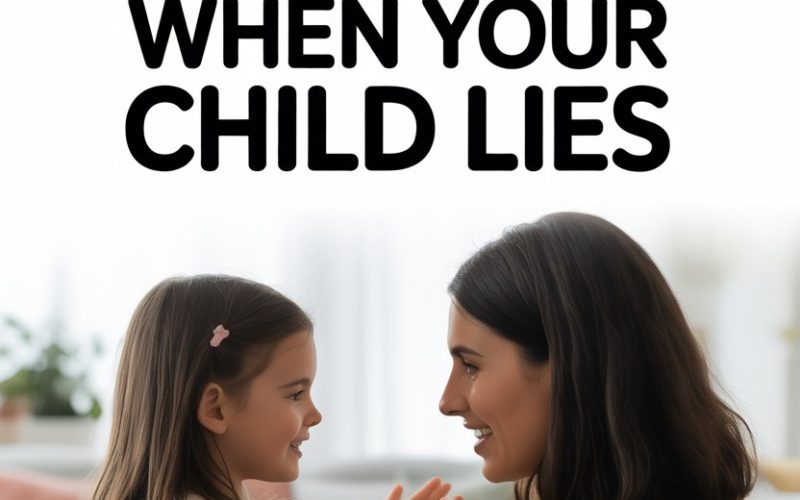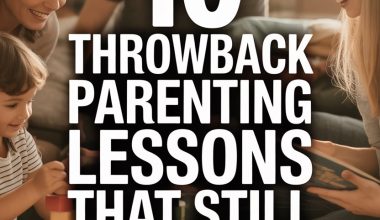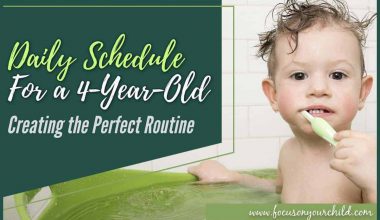Little white lies. Whoppers worthy of a Netflix drama.
The “it wasn’t me” routine delivered while your cherub stands ankle-deep in biscuit crumbs.
Every parent faces fibbing, and most would gladly trade their best coffee mug for a script of what to say when their child’s nose takes a Pinocchio turn.
If you’re reading this between work calls and reheating that same cup of tea, you’re in the right place.
Here’s your practical guide to the art of responding when your child tells a lie—without unleashing your inner police detective.
Why Do Kids Lie?
Before tackling what to say, it helps to crack the code on why children sometimes bend the truth. Lying is often less about malice and more about avoiding trouble, seeking attention, or flexing those imagination muscles.
Researchers have found that even very young children lie for self-preservation, while older kids might experiment with fibbing to fit in socially or to avoid disappointing adults.
A child’s first untruth is rarely a sign of looming villainy. More likely, it’s just a clumsy attempt to solve a problem—like dodging broccoli or escaping the shame of breaking a toy.
Resist the “Gotcha” Moment
The shock of discovering your child’s lie can make even the calmest parent want to pounce: “Aha! Caught you!” Tempting as it is to demand a confession, resist the urge.
Try this: “I see you said you didn’t take the crayons, but the wrappers are under your pillow. Can you help me understand what happened?”
Avoid: “Don’t lie to me! I know you took them. Tell me the truth or else.”
When you swap interrogation for curiosity, you invite honesty. Children, like adults, clam up when cornered.
You’re far more likely to get the full story—and keep your relationship intact—by showing you’re open to hearing it.
Keep Your Cool—Even if You’re Fuming
You’ve been lied to. Maybe about screen time limits, maybe about who left toothpaste blobs everywhere. Deep breaths.
Kids often lie when they’re anxious, and seeing you lose your cool can crank that anxiety up to eleven.
Try this: “It can be hard to tell the truth, especially if you’re worried about getting in trouble. I’m glad you’re talking to me now.”
Avoid: “How could you lie to me like this? I’m so disappointed in you.”
When you stay steady, you teach your child that honesty is safe—even when mistakes have been made.
Praise Truth-Telling, Not Just “Good Behaviour”
It might feel natural to shower kids with praise when they fess up: “Good job telling the truth!” But sometimes, we only offer those kudos when the truth is pleasant.
If your child confesses to something messy, that’s the moment to highlight their courage.
Try this: “Thank you for telling me you spilled the water, even though it was hard. That’s very brave.”
Avoid: “You should have told me right away! Now look at the mess.”
Praising honesty—even when the news isn’t great—teaches kids that the truth matters more than perfection.
Don’t Label Your Child as a Liar
Words stick. Children internalise labels, and being called a liar can become a self-fulfilling prophecy. You wouldn’t want to be defined by your worst moments—neither does your child.
Try this: “I know you told me something that wasn’t true. Everyone makes mistakes. Let’s work together on telling the truth.”
Avoid: “You’re such a liar! You always make stuff up.”
Focus on the behaviour, not the child. It’s the difference between “you made a mistake” and “you are a mistake.” Big difference.
Help Kids Make Amends
A lie often leaves some real-world mess behind: hurt feelings, missed bus stops, or chocolate wrappers stuffed behind the sofa. Encourage your child to fix what can be fixed.
Try this: “You told your brother you’d play with him but snuck off to play Xbox instead. What can you do to make it up to him?”
Avoid: “You lied, now go to your room.”
Restoring trust—and the odd sticky situation—shows children how to take responsibility, not just dodge consequences.
According to this research on restorative practices, repairing relationships after a lie helps kids develop stronger social and moral skills.
Model the Kind of Honesty You’d Like to See
Children are expert copycats. If you fib about their age to get a cheaper ticket at the swimming pool, those little ears are listening. Oops.
Try this: “I made a mistake and told Auntie we couldn’t come because we were busy, but really I was too tired. Next time I’ll be honest.”
Avoid: “It’s just a little white lie. No harm done.”
When you demonstrate honest self-correction, you show your child that even grown-ups get it wrong sometimes—and that fixing mistakes is just part of life.
Use Empathy Instead of Shame
Very few children set out to be crafty masterminds. A lie can signal fear, embarrassment, or worry about letting you down.
Tuning in to those feelings helps you respond with empathy, not shame.
Try this: “Were you worried about getting in trouble if you told me the truth?”
Avoid: “Why would you lie to me? You should be ashamed.”
When you meet fibs with compassion, you open the door to understanding. A child who feels safe is much more likely to come to you next time.
Teach the Difference Between Fantasy and Dishonesty
Younger children often blur the line between what’s real and what’s pretend. The invisible dragon in the garden? Probably not a deliberate deception.
Save your energy for the moments when the truth really matters.
Try this: “That’s an amazing story! Is that something that really happened, or is it from your imagination?”
Avoid: “Stop making things up. Tell the truth!”
Celebrating creativity while gently distinguishing between truth and fantasy helps kids build honesty skills without stifling their inner storytellers.
Set Reasonable Consequences, Not Punishments
If every lie is met with massive punishment, you’ll soon find yourself hearing fewer truths and more creative cover-ups. Natural, proportionate consequences work better.
Try this: “Since you didn’t tell me you finished the sweets, we need to wait until next week to buy more. We need to be honest about what we use.”
Avoid: “Because you lied, you’re grounded for a month!”
This approach encourages honesty, even when it’s uncomfortable, and helps kids see that telling the truth keeps life running smoother for everyone.
When to Worry—and When Not To
Repeated, elaborate lies? Stories designed to hurt others or escape all responsibility?
If you notice these patterns, it might be a sign your child needs some extra support.
According to this expert advice on childhood lying, persistent dishonesty can point to underlying stress, anxiety, or other challenges.
Most fibs, though, are part of normal development.
Your child isn’t plotting to become the next great con artist. They’re just learning how the truth works—and relying on you as their guide.
Honesty is a Journey, Not a Destination
Every parent wants to raise a child who’s trustworthy—and let’s be honest, who tells you when the last biscuit is gone.
The road to honesty isn’t straight, and you’ll trip over the occasional tall tale. What matters most is how you respond.
Stay curious, keep your cool, and cherish those awkward, honest conversations. You’ll be building trust, one biscuit crumb at a time.
And who knows? You might just find a few invisible dragons along the way.




